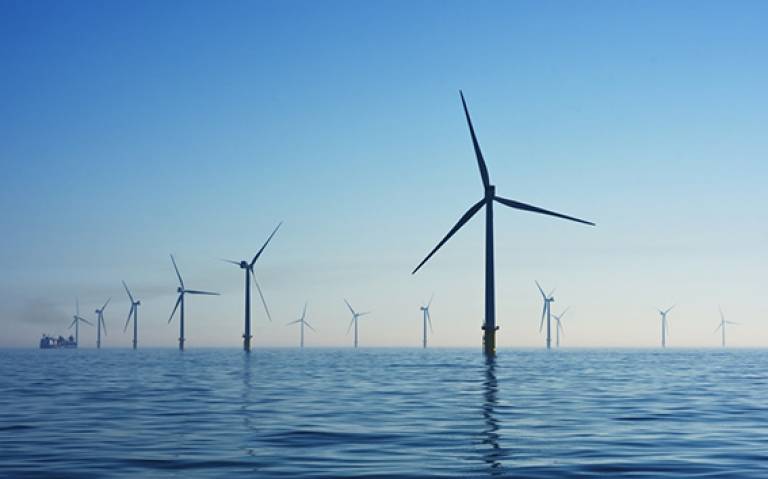UCL Energy contributes to major report: ‘Shifting the focus: energy demand in a net-zero carbon UK’
5 July 2019
A number of UCL Energy Institute staff have contributed to a major report published by The Centre for Research into Energy Demand Solutions (CREDS)

The Centre for Research into Energy Demand Solutions (CREDS) has today launched its first major cross-theme report, based on existing research, called Shifting the focus: energy demand in a net-zero carbon UK.
The report proposes actions to strengthen and deliver the commitments in the Government’s Clean Growth Strategy. It seeks to answer the question: “what is the role for energy demand change in the transition to an energy system consistent with a net-zero carbon UK?”
This report contains around 40 recommendations, some of which are very specific, but at a high-level it recommends:
- Prioritising energy demand solutions and recognising all of their benefits.
- Scaling-up policies that work now and investing in energy demand innovation in the
- long-term.
- That Government acts now to develop effective institutions and policy.
UCL Energy Institute researchers Tadj Oreszczyn, Peter Mallaburn, Cliff Elwell, Ian Hamilton, Gesche Heubner and Bob Lowe authored the chapter ‘Reducing energy demand from buildings’, and Peter Mallaburn also co-authored the chapter ‘Policy: delivering further and faster change in energy demand’. Bob Lowe and Mike Fell of the institute also reviewed the overall report.
Nick Eyre, CREDS Director, said:
“Changing the way we use energy will be crucial to delivering a net-zero carbon UK. Energy supply has tended to be the main concern of energy policy, we need to shift that focus towards energy demand.
Demand-side change has to be a major part of the strategy for an affordable, secure, net- zero carbon energy system. Delivering it will not be easy, as it is a broad and complex agenda. But delivering the UK’s transition without doing this would be much more difficult.”
In a foreword to the report, Chris Stark, Chief Executive, Committee on Climate Change, said:
“Public support for changing the way energy is used is essential. Reducing energy demand saves money for households and businesses, of course, as well as reducing emissions. And importantly, it can have other benefits – improving air quality, improving our homes and public spaces, and creating employment across the UK.”
Further information
Download the report
UCL’s involvement
CREDS Press contact
Aimee K Eeles
Web and Communications Manager, CREDS @CREDS_UK
aimee.eeles@ouce.ox.ac.uk
Image credit: Nicholas Doherty, UnSplash
 Close
Close

